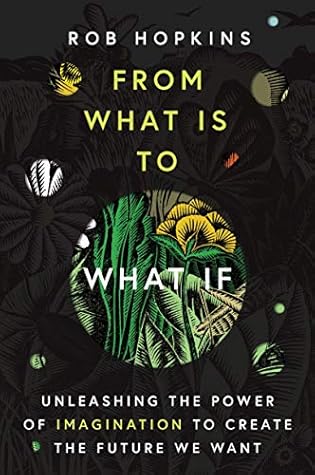More on this book
Kindle Notes & Highlights
by
Rob Hopkins
Read between
August 17, 2023 - February 11, 2024
One of the fundamental challenges this book has identified is that we need to be able to imagine positive, feasible, delightful versions of the future before we can create them.
‘Mental illness … is consistently associated with deprivation, low income, unemployment, poor education, poorer physical health and increased health-risk behaviour.’
Might it be that the more deeply we are immersed in crisis and the more dystopian the future appears, the less able we are to imagine a way out?
Our imaginations are rooted in the natural world.
In tandem with the loss of biodiversity, we are losing, as Robert Macfarlane notes, the language that accompanied it. He has documented a dizzying array.
Imagination – that ‘ability to look at things as if they could be otherwise’ – needs diversity to feed it.
Any national approach to rebuilding the imagination must take access to nature seriously, and must also recognise the power of bringing more nature to where people live, to a ‘rewilding’ of our towns, cities and neighbourhoods.
And that ‘it is culture and people that will drive change’.
The campaign cultivates so many opportunities for people to get involved, have a voice, or become citizen scientists.
rekindle the collective imagination, give people a taste of changemaking, and draft a powerful new story for a community to tell about itself.
safe spaces, time away from screens,
facilitate connection and craft a narrative that offers a hopeful take on the future, the world can start to come back into focus.
the living world points the way towards imagining new economic models, developing climate resilience, fostering social inclusion
‘when nature is so beautiful, I am not conscious of myself any more, and the picture comes to me as if in a dream.’
‘Art is the summoning of attention,’


